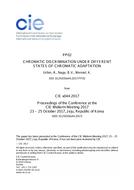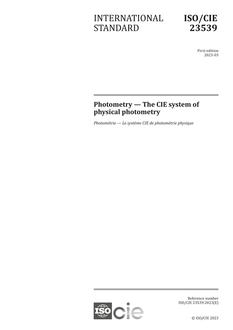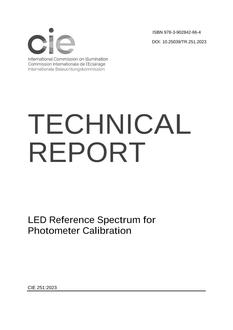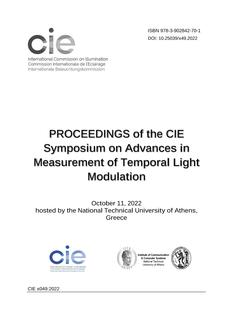
CHROMATIC DISCRIMINATION UNDER DIFFERENT STATES OF CHROMATIC ADAPTATION (PP02, 483-489)
Click here to purchase
The objective of our study was to examine the effect of different states of chromatic adaptation on the adapted white point based on chromatic discrimination measurements. In the study normal colour observers performed the trivector test of the Cambridge Colour Test (CCT) in order to measure the just-noticeable stimuli on the three confusion lines under different states of chromatic adaptation. Two states of chromatic adaptation were achieved applying colour filters. The tests were accomplished without filter as a reference. The factors (and their levels) of the statistical analysis were the followings: state of adaptation (no filter and the two different filters), analyzed confusion line (Protan, Deutan and Tritan), and background chromaticity (distance from the neutral point towards the chromaticity point of the filter and in the opposite direction).The analysis shows that adapting to the filters affects colour discrimination depending on the background chromaticity compared to the results with the reference test. In our results we estimate the change in chromaticity of the background for best colour discrimination.
Product Details
- Published:
- 10/23/2017
- Number of Pages:
- 8
- File Size:
- 1 file , 1 MB


